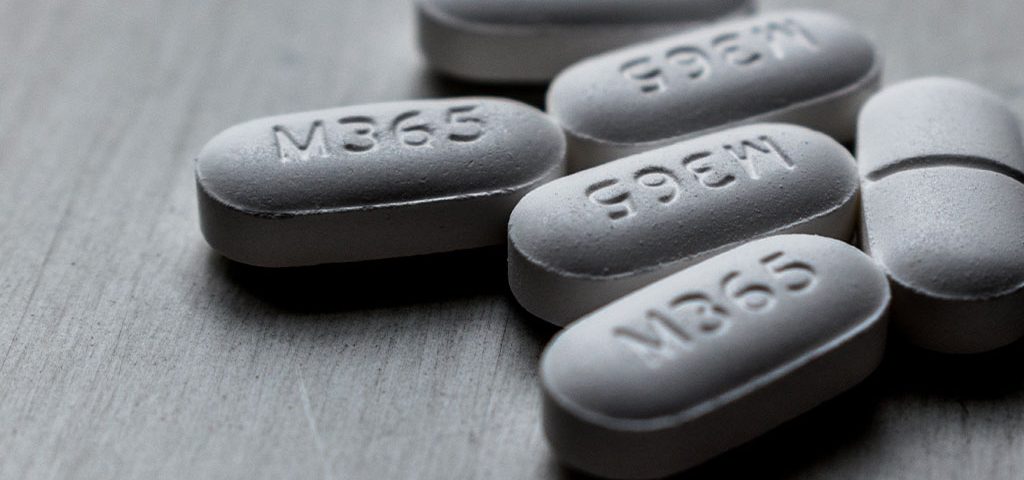Norco is the brand name for a combination medication containing either acetaminophen and hydrocodone. Like other opioid-containing medications, Norco is prescribed to patients suffering from mild to severe pain and/or severe cough. Supplied in tablet form, Norco is usually prescribed in 2 strengths: either 5 mg, 7.5 mg, or 10 mg of hydrocodone combined with 325 mg of acetaminophen or ibuprofen. As effective as this medication is, it’s important to be mindful of Norco addiction, signs that someone is becoming dependent, and the available treatment options.
Is Norco Addictive?
Norco is classified by the Drug Enforcement Agency (DEA) as a Schedule II drug under the Controlled Substances Act, meaning it has medically accepted use along with a high potential for abuse. While not as potent as Schedule I drugs, considering that Norco contains the commonly abused opioid hydrocodone, it’s no surprise that it’s on the top of the list.
Norco is addictive because of its effects on opioid receptors as well as chemicals like dopamine. Norco works by attaching to opioid receptors in the brain, spinal cord, gut, and other areas of the body. When attached, the drug blocks pain signals from the body to the brain, making the user more comfortable.
At the same time, Norco triggers the nucleus accumbens, otherwise referred to as the brain’s reward system. When this occurs, chemicals like dopamine are activated in the central nervous system. Dopamine is a feel-good chemical associated with improved mood, pleasure, and well-being. When it’s activated in the brain, the person will feel a sense of euphoria.
When opioids like Norco are misused or taken in high doses, they lead to a spike in dopamine and cause a high. This high is what becomes addictive to the user, in addition to the physical tolerance and dependence on the drug that develops as a result of long-term use.
Norco Side Effects
The opioid in Norco (hydrocodone) contributes to most of the drug’s side effects. It’s common for users to experience some side effects when they’re first prescribed Norco. These usually dissipate within a few days to a week as the body becomes accustomed to the drug.
Common Norco side effects include:
- Anxiety
- Constipation
- Dizziness
- Drowsiness (sleepiness)
- Drug dependence
- Heartburn
- Mood changes
- Nausea
- Skin rash
- Vomiting
As we previously mentioned, hydrocodone is a key active ingredient in different branded drugs, including Norco, Lorcet, Lortab, and Vicodin – all of which have a potential for abuse and addiction. Since hydrocodone is an opioid, it has a very acute potential for addiction. What’s more, misusing Norco by either taking it in higher doses than prescribed, taking it without a prescription, or mixing it with other drugs can contribute to more severe effects.
Typical Norco abuse side effects include:
- Anxiety
- Calling pills by street names, such as “hydros,” “vics,” “vikes,” or “vico”
- Chest pain
- Coma (during overdose)
- Depression
- Difficulty breathing
- Extreme drowsiness (sleepiness)
- Feeling faint
- Feeling fearful
- High body temperature
- Insomnia (during withdrawal)
- Mental changes such as confusion
- Muscle aches (during withdrawal)
- Seizure (during overdose)
- Slowed heart rate
- Stiff muscles
- Swelling of face, tongue, or throat
- Trouble breathing
- Trouble walking
If you experience any of these side effects while taking Norco, talk to your doctor right away. If you or someone you know is misusing the medication, our rehab in Texas offers prescription drug detox that can help get the recovery process started.
Norco Addiction Symptoms
If you suspect that a loved one is misusing their Norco medication, or if you find yourself struggling to control your use of the drug, then symptoms are worth looking into. Below are some common Norco abuse signs and symptoms to look out for.
- Needing more Norco to achieve the same relief
- Mixing Norco with other drugs for a better high
- Spending most of your time getting or using Norco
- Neglecting responsibilities and relationships in favor of Norco use
- Doctor shopping (going from one physician to another for more prescriptions)
A person who frequently abuses or is under the influence of this medication may also experience and display physical Norco abuse symptoms like:
- Drowsiness and sedation
- Difficulty staying awake
- “On the nod” or slipping back and forth into consciousness
- Slow or shallow breathing
- Slurred speech
- Blurred vision
- Changes in behavior
- Poor hygiene
- Changes in appetite
- Sudden weight gain or weight loss
- Withdrawal from loved ones
- Spending time with people who also use drugs
- Lying and stealing from loved ones
As you can see, a Norco addiction can be life-changing, and not in a good way. While recovering from the side effects of Norco abuse can be difficult, many people have successfully done it. The best way to recover from an addiction to Norco is to seek out professional treatment, starting with a medically supervised detox.
Our Texas recovery center offers various treatment options, including opioid addiction treatment, to help people with drug use disorders recover. Starting with detox, we help clients safely overcome withdrawals, drug cravings, and more. Our therapy programs also allow our team to treat patients’ psychological struggles, as well.
For more information about our Texas drug and alcohol treatment, call Banyan Treatment Centers today at 888-280-4763 or send us your contact information so we can reach out to you.
Related Reading:









